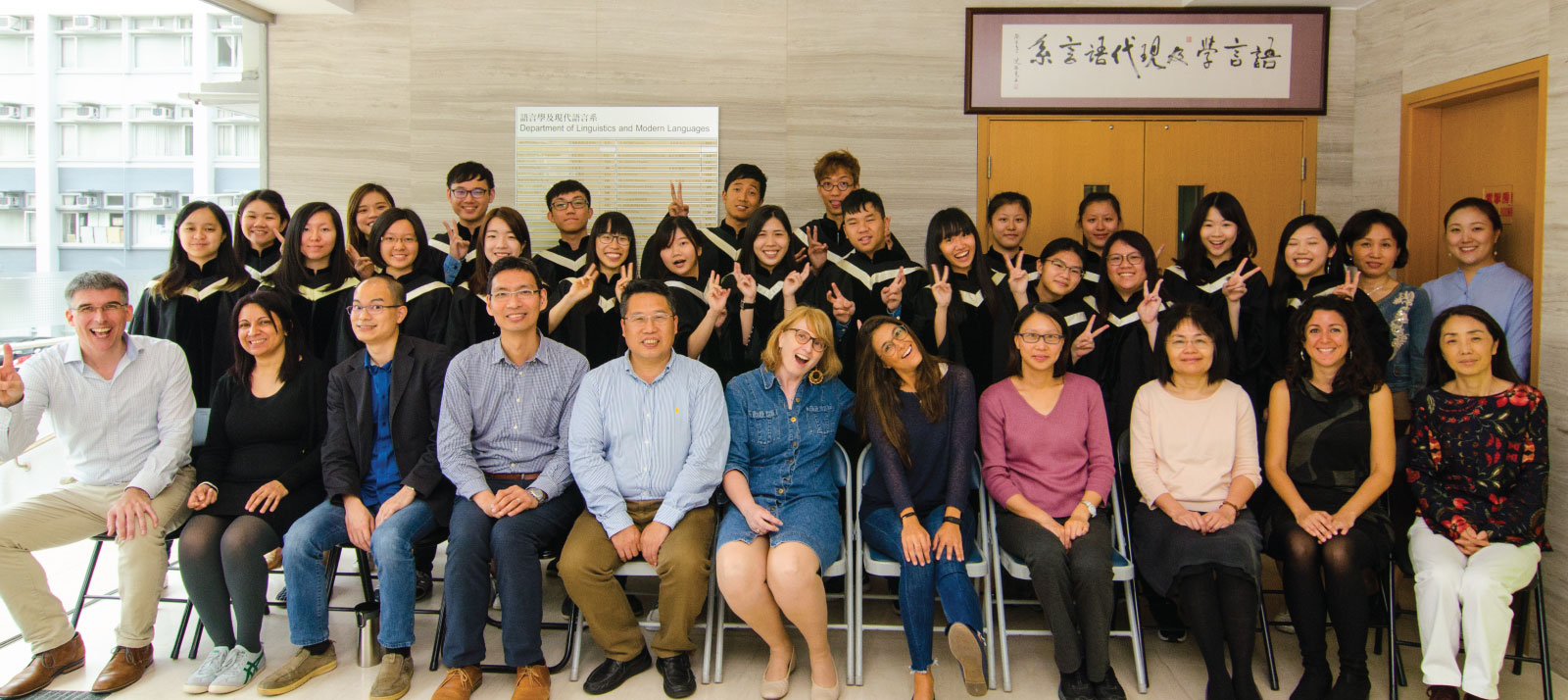Major programme in Linguistics
Language is part of our biological endowment. It is what distinguishes us from other animal species; it is what makes us human. At the same time, language is an intricate symbolic system for communication, consisting of an elaborate network of words that encode concepts and intentions, and a finite set of rules for forming recursive sentence structures and expressing complex meanings. To be able to use language well for the precise articulation of ideas in communication, we need to have a good understanding of the nature and form of this symbolic system. An important goal of our undergraduate programmes is to enable students to do this.
Hong Kong is a multi-lingual, multi-cultural community in which Cantonese, Modern Standard Chinese, and English are the dominant languages. In addition, Chinese dialects such as Chiuchow (Chaozhou), Hakka (Kejia), and Shanghai are actively used to varying extents by members of the community, as are the familiar European languages of French, German, and Asian languages such as Japanese, Korean, Hindi, Panjabi, Tagalog, Thai, and Indonesian. Undergraduate students in Linguistics are exposed to various modern languages, and concepts of language diversity and socio-linguistic variation. Such exposure will enable students to better understand their present position as bilinguals, and increase their awareness of the rich cultural heritages of the community.
The field of Linguistic science has established a wealth of scientific findings on language. Through a programme of rigorous study, students will develop a basic understanding of the methods of linguistic analysis and an appreciation of some of the achievements of the field. Students will acquire an enlightened outlook on language, as well as general problem-solving and research skills.
The BA programme in Linguistics aims to achieve the following learning outcomes in students:
- Possessing a body of knowledge about theories of language and language acquisition as well as the associated methods of analysis.
- Possessing a body of knowledge about the relationship between theoretical linguistics and linguistics applied to other disciplinary studies.
- Possessing a sharpened awareness of the languages used in the local community through developing their abilities in analyzing, primarily but not exclusively, Cantonese, Mandarin and English, in particular how these languages are structured and acquired as a linguistic system, and how they function socio-linguistically in the local community, the region and the world.
- Possessing analytical and critical thinking capabilities and a sufficient set of research skills for work and postgraduate study.
- Being linguistically competent in Mandarin, Cantonese and English for work and postgraduate study.
- Developing an appreciation and knowledge of Modern Languages for intercultural communication.
Option 1: Linguistics major (with no minor)
Option 2: Linguistics major (with one or two minors)
Any one of the following combinations:
-
Linguistics major + one language minor
-
Linguistics major + two language minors
-
Linguistics major + one language minor + minor in one other academic discipline
-
Linguistics major + minor in one other academic discipline
-
Linguistics major + minors in two other academic disciplines
Option 3: Linguistics Major (Double Majors)
Linguistics major + major in other academic discipline
Language and cultures programmes abroad are arranged every summer with universities in France, Germany, Italy and Spain. The courses last for one month and comprise 80 – 90 hours of language instruction, cultural programmes and excursions. The programmes are fee-paying. After successful completion of the course, students may consider transferring the credits gained abroad to the modern language curriculum.
Currently, Modern Languages courses have been arranged with the following institutions in Europe:
France
- Université Catholique de Lyon
Germany
- Technische Universität Dresden
- Albert-Ludwigs Universität Freiburg
- Ruprecht-Karls Universität Heidelberg
- Leopold-Franzens Universität Innsbruck
Italy
- Universita per Stranieri di Perugia
Spain
- Spanish Institute Audio Gil (Castellón)
- Universidad de Granada
- Fundación Campus Comillas - Universidad de Cantabria
Overseas exchange programmes
In addition to the overseas summer study programmes, students can also participate in the various overseas exchange programmes coordinated by the University and the Colleges. Among the countries included in these exchange programmes are Australia, Belgium, Canada, Denmark, France, Germany, Italy, Japan, Korea, the Netherlands, New Zealand, Mexico, Mainland China, Singapore, Sweden, Taiwan and the U.S.A.
Those wishing to further their studies may consider our postgraduate programmes. Some of our graduates from these programmes also received competitive scholarships to further their studies in prestigious universities abroad.
Our graduates of Bachelor of Arts and Master of Arts programmes in Linguistics are exempted from the English Language Proficiency Assessment for English teachers by the Education Bureau, HKSAR upon completion of relevant teacher training.

